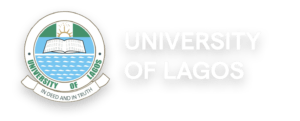One of the biggest mistakes we make is assuming other people think the way we think.” – Anonymous. Conscious of the need for Africans to gain relevant understanding of the European Union (EU) culture, policy and systems, a team of vibrant scholars at the University of Lagos (UNILAG) in Lagos State, Nigeria have taken on the challenge of empowering youths with the necessary knowledge of the socio-political and economic aspects of countries in the European Union and ways to harness these differences for the betterment of the African economy, their people and the future.
The team, via the “UNILAG-Jean Monnet Module Programme”, an EU-Africa Connectivity (EU-Africa Connect) project under the Erasmus+ programme commenced a Summer School for this purpose on Monday, January 9, 2023.

Over 40 students in the 200 level of various disciplines in the University of Lagos (UNILAG) are the first to benefit from this golden opportunity. As part of the onboarding process, they were assigned to different countries and political parties in the EU and its parliament. They are to adopt these countries as their nationality and study their peculiarities within the period of the summer school.
One may wonder, why focus on undergraduates? A saying by the 32nd U.S. President, Franklin D. Roosevelt explains this. “We cannot always build the future for our youth, but we can build our youth for the future.”
Empowered with the key to unlocking doors for connecting, enriching and maximising the impact of the global community, these students will become valuable assets to their communities, home countries and Africa at large.



The summer school will expose them to policy research and capacity building to contribute to policy design and advocacy. It is expected that at the end of the experience they would be equipped with the necessary knowledge of how the world works through a European’s eyes and understand how to influence the African narrative in international spaces, thus promoting our culture and values and deflating unfounded claims and stereotypes about the African race.
The theme of this year’s Summer School is “Bringing Europe Closer to Africa”. It entails giving the students relevant insights into the parliamentary process of EU and having them hold mock parliamentary debates as EU party representatives.
At the end of the school, students will have the opportunity to contribute to peer reviewed research for publication in a rated and index-ranking journal in Europe or Africa.
Some may ask, why bring Europe closer to Africa and not the other way around? A look at what Preeth Nambiar, an author-poet, said in his debut poetry volume titled “The Voyage to Eternity” explains this simply. It goes thus: “Perhaps one of the greatest means to achieve global peace and harmony is cultural exchange. It opens up the vistas of human understanding and further expands our universal consciousness. Let us raise ourselves from the narrow perspective of being a citizen of a particular country to global citizenship that is the greatest demand of modern world.”

Professor of Economics, Olufemi M. Saibu, who is the Project Coordinator of the EU-Africa Connect, UNILAG-Jean Monnet Module Programme, explained that several European countries have several institutes of African studies where they gain an understanding of Africa but Africans have very few centres/institutes of European studies to understand Europe.
Notably, the imbalance in knowledge acquisition of the ways and ideologies of our neighbours is indeed detrimental to our growth as a people.
The vision of the team led by Professor Olufemi Saibu is to bridge this knowledge gap by first creating a generation of informed students. Over the three (3) year period of the project, the team hopes to have given about 150 students exposure to European studies and position the University of Lagos as a leading producer of globally aware individuals.

The Deputy Vice-Chancellor (Academics and Research), University of Lagos, Professor Bolanle Oboh, in her address during the opening ceremony of the Summer School asserted that both Africa and Europe need each other, hence the University of Lagos through the EU-Africa Connect project is championing the cause to strengthen existing collaborations between Africa and Europe.
She encouraged students to make good use of the rare opportunity the school offers. She informed that to distinguish themselves in their various chosen fields, students must learn beyond the provisions of the traditional curriculum of their respective courses by acquiring different soft skills along the lines. Some of such skills are public speaking skills and the confidence they will derive from the mock parliamentary debates incorporated into the summer school.
The first session of the EU-Africa Connect Summer School will hold for 3 weeks between Monday, January 9 and Friday January 27, 2023.
The EU-Africa Connectivity Project, a University of Lagos-Jean Monnet Module Programme, is a 3-year programme under the EU- Erasmus plus Jean Monnet Action for Higher Education Modular programme. It comprises of 8 modules grouped into 3 Sessions of Summer Schools, 3 sessions of Research Workshops, 3 sessions of EU Mock Parliament Presentation and a final International Conference on EU-Africa Connectivity designed for university students seeking career in international relations and diplomacy.
Erasmus+ is the EU’s programme to support education, training, youth and sport in Europe. It places a strong focus on social inclusion, the green and digital transitions, and promoting young people’s participation in democratic life.



















